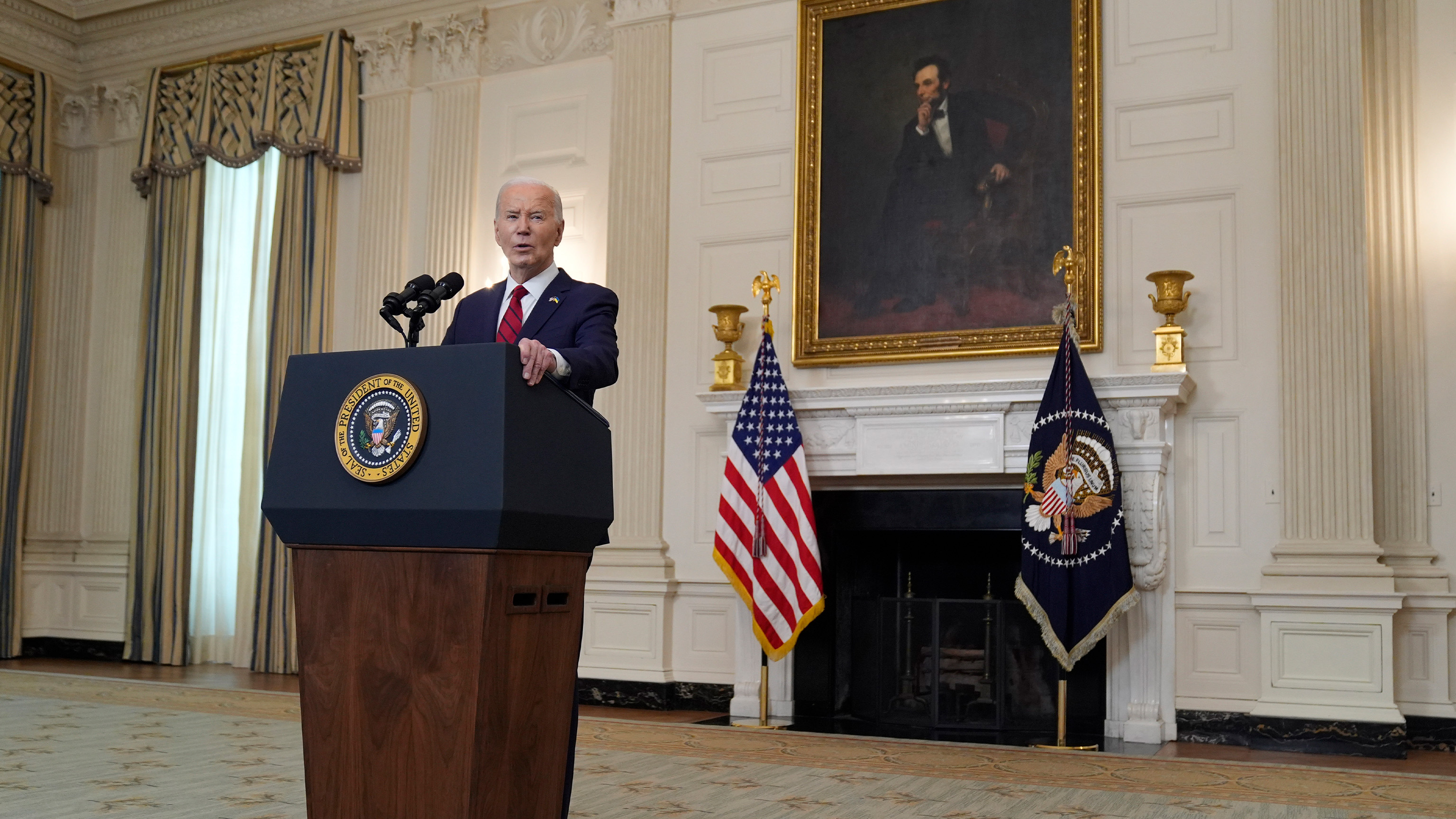Dozens arrested in Belarus amid unusual signs of political unrest

Police in Belarus detained dozens of people Friday evening during protests sparked by the arrest of an opponent of the country's authoritarian leader, Alexander Lukashenko.
Small protests, fueled in part by what is seen as his mishandling of Belarus' coronavirus epidemic, were seen in multiple cities across the former Soviet country, the latest unusual signs of growing discontent with Lukashenko ahead of a presidential election this August.
In the past two weeks, a crackdown has targeted a number of his key rivals in the election. On Thursday, police arrested Viktor Babariko, a former banker seen as a leading challenger to Lukashenko, a day before the deadline to register as a candidate expired.
Hundreds of people on Friday night lined up and waved flags in the capital, Minsk, and several other cities. Police and plainclothes security officers grabbed demonstrators and bundled them into vans, including several reporters from international news organizations. The Belarusian human rights group Vesna said over 120 people had been arrested.
Lukashenko has been in power for 24 years and is running for a sixth term. The election normally would be expected to be a carefully managed coronation for Lukashenko, involving dummy candidates permitted to run but with no chance of defeating him. But this year real challengers have emerged, amid a weariness with the president, intensified by an economic downturn and anger among many with Lukashenko's handling of COVID-19.
Lukashenko has dismissed the pandemic as hysteria and refused to impose many quarantine measures, rejecting pleas from the World Health Organization to do so even as Belarus' epidemic has become one of the region's largest. He has continued to make demonstrative public appearances, forcing people to take part in a Soviet-style public works day and holding a huge annual military parade marking victory in World War II.
In the past few weeks, there have been as series of protests that while still relatively small have been startling for Belarus, where criticism of the government easily can lead to arrest. Hundreds of demonstrators have been standing in lines, 2 meters (about 6.5 feet) apart from one another to remain socially distanced.
Authorities have now seemed to crack down as the election approaches.
Babariko was arrested on Thursday after an investigation suddenly was opened into his former bank, the local unit of Russia's Gazprombank. The offices of the bank, Belgazprombank, were raided in a tax evasion and money laundering case, and 15 workers were detained. Babariko has called the case political persecution.
Another opponent, the popular Youtube vlogger Sergei Tikhanovsky, was arrested last week at a rally and has been charged with public disorder, which carries a possible three-year sentence. Tikhanovsky has compared Lukashenko to "a cockroach," and the challenger's supporters have begun carrying slippers to demonstrations, a reference to squashing him. It's prompted some to describe the upswell in opposition as the "Slipper Revolution."
Tikhanovsky's wife, Svetlana, has sought to run in his place, gathering the 100,000 signatures needed to register. This week, she released a video saying she had received anonymous threats against her children warning her to drop out. In tears, she said for now she would continue.
Lukashenko on Friday said he'd successfully thwarted what he claimed was a foreign-backed revolution, comparing it to Ukraine's 2014 uprising. He implied the unrest was being stoked by both Western countries and Russia.
Lukashenko has long maintained a tricky balancing act between Europe and Russia. In recent years, as Russia has become more aggressive, and following the invasion of Ukraine, he has turned more toward the West, allowing more political freedoms.
In the past year, Lukashenko has reached out more, worried that Russia wants to absorb Belarus. In May, the U.S. posted an ambassador to Minsk for the first time since 2008 and a series of top U.S. officials have visited recently.
A major challenge to Lukashenko's rule would put him in the position of having to choose between maintaining relations with the West, needed to retain his independence from Moscow, and political repression to stay in power.
The U.S. embassy on Friday issued a statement warning the Belarus government to "uphold its international commitments to respect fundamental freedoms by allowing the Belarusian people to freely, peacefully assemble."
The European Union told Belarus to release Babariko and to "ensure a meaningful and competitive political contest."
Lukashenko on Friday appeared to make clear he had already decided on the choice, warning the opposition directly he would not behave democratically if the challenge continued.
"Don't put me before a choice. If I behave myself democratically, if I show that I'm white and fluffy, I have a chance of losing the country entirely. No one will forgive me, or every one of us, for the destruction of Belarus," Lukashenko told a meeting of officials televised on the state channel Belarus 1.
He accused the opposition of pushing him towards a "solution by force."
"For now," he continued, "I am asking and warning: Don't do it, don't force the authorities to move to measures of reaction, don't push us to that. I will preserve this country no matter what it costs me."




